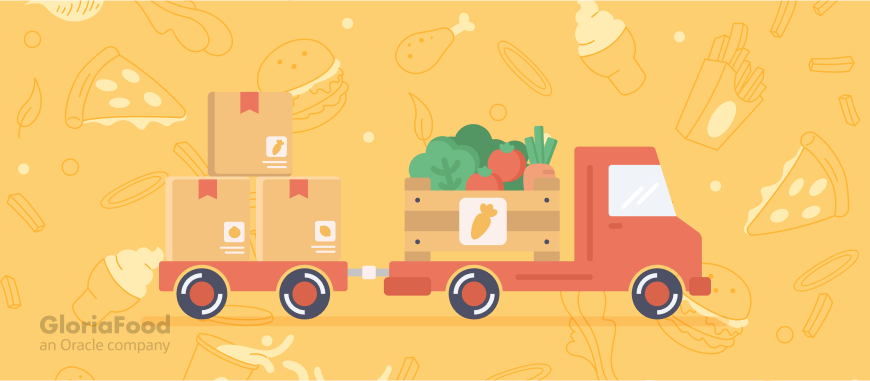Today, the restaurant business is booming. Restaurants and cafes are popping up everywhere. With this increase in competition between various brands, restaurants need to gain customer trust through good quality food served at an affordable price. That’s why they need to choose the best restaurant suppliers on the market.
One of the significant factors that influence a customer’s decision to choose a place to eat out is the quality of the food. Imagine if you go to a cafe expecting freshly baked bread but end up receiving stale bread that has been lying in the basket for many hours.
This will surely disappoint your taste buds and turn you off from that cafe forever. Likewise, there can be endless scenarios where bad quality ingredients ruin all efforts made by a restaurant owner to lure customers and gain their trust.
So, how does a restaurant owner guarantee that the food they serve is fresh and of high quality? By choosing suppliers who can provide all the necessary equipment, supplies, and ingredients to run your kitchen.
However, with the vast number of restaurant suppliers on the market, it can be quite daunting and confusing for a restaurant owner to pick the right one. Here are some tips on how to choose restaurant suppliers.
How to Choose Your Restaurant Suppliers
1. Check the Pricing
One must consider costs before buying anything at all. Try learning about different suppliers and their respective rates before deciding upon one particular brand of ingredients or equipment.
It would help if you did some research and found out more about the ingredients and equipment they offer. This will give you a better idea of the market and help you make an informed decision.
Check their pricing online, or contact the brand and see if they can give you a breakdown of their pricing.
Ensure that if you choose particular restaurant suppliers, their reporting is concise and accurate. Not all suppliers have a return policy, but it would be helpful to inquire about that.
2. Ask for Recommendations from Industry Professionals
Another critical factor to consider when choosing a restaurant supplier is its reputation. Ask chefs, restaurant owners, and other industry professionals about which restaurant supply store and ingredients suppliers they recommend.
Word of mouth is still one of the most effective ways of finding suitable restaurant suppliers, so don’t be afraid to ask around.
Checking review websites can also be helpful as previous customers would have already shared their experiences with different suppliers. Asking for referrals may point you in the direction of recommended suppliers.
You can also use a find suppliers app to see what local suppliers in your area have to offer. From there, you may be able to determine what other industry professionals think of a particular supplier.
3. Test the Products Beforehand
If you’re not sure about a supplier, ask them if you can have a trial of their products. Most suppliers will be willing to send you some free samples so that you can test them out in your kitchen and see for yourself if they are compatible with your needs.
This is a great way to get to know more about a supplier and determine if the quality of their ingredients, supplies, and equipment is up to par.
The products provided by your supplier must be of high quality. This means that the food ingredients must be fresh, hygienically packed, and processed. But most importantly, the products must taste and look delicious.
Presentation is the first part of a mouthwatering meal, followed closely by taste. Nobody wants a stunning meal that tastes mediocre or an ugly meal that tastes amazing, especially at a high-end restaurant. Visuals and flavor go hand in hand.
Consider testing out equipment beforehand as well. Items such as knives, utensils, and more should all be thoroughly tested before purchasing, if possible. This will help you save money in the long run, should the equipment not be suitable.
While a test run may not demonstrate a supplier’s consistency, it should give you an idea of product freshness. Choosing a local supplier hopefully ensures that products arrive quickly after you’ve selected them.
Small, local suppliers might not supply enough produce for a large restaurant, but their produce may be superior. Large suppliers will generally provide consistent produce quality but may be less flexible, unlike smaller ones.
Whatever you decide in the end, ensure that you have suitable backup suppliers, should you require their services.
4. Visit the Supplier’s Warehouse
Another critical factor that you cannot overlook is the availability and location of a supplier’s warehouse. Ensure that you visit the supplier’s warehouse and check out how their facility looks and if their storage is hygienic enough to prevent contamination of the products stored there.
Ensuring that the warehouse is appropriately equipped is crucial for maintaining high-quality standards. Notably, finding suppliers who leverage modern and efficient material handling systems can not only ensure product safety but can also significantly enhance operational efficiency.
John Geddes, Director of Sales at East Coast Storage Equipment, underlines this point:
Sophisticated storage solutions such as pallet racking or automated material handling systems ensure streamlined processes from inventory management to order fulfillment.
Covering multiple needs with new or used equipment allows for flexibility and scalability as restaurants evolve.
One must look for suppliers whose warehouses are well-organized, clean, and equipped with modern machines. The storage area should be such that it can store all ingredients and equipment according to your requirements.
You must also check if they have ample storage space so that they don’t have to keep on refilling supplies often. This will help ensure that your kitchen will not run out of supplies at the most inopportune times.
Read more: 7 Effective Restaurant Inventory Management Tips for 2021
For produce where you can’t visit the origin of the supplies, inquire about the country or farm of origin. This is vital, especially if you’re selling a specific type of food, such as organic produce. You want to be positive that the food you’re supplying is indeed organic, and you can advertise it as such.
5. Consider Delivery Speed
Deliveries need to be prompt so that the ingredients remain fresh. Try finding out which days of the week suppliers deliver their products and when they can arrive at your doorstep with your supplies.
This way, you can plan your menu accordingly depending on when the delivery is scheduled for each day. Inventory delivery is even more crucial when you also provide food delivery services because the ingredients travel twice.
How far away are the suppliers from your restaurant? It is always best to go for suppliers who can deliver quickly and keep you updated on the progress of your supplies along the way. This will ensure that you are not left with empty shelves in your kitchen.
At the same time, consider packaging too. Are you going to be overloaded with a considerable amount of packaging for your produce? Talk to your suppliers to ensure that produce arrives in good condition without excess packaging that may not be environmentally-friendly.
Read more: 9 Food Delivery Packaging Ideas to Make Your Restaurant Stand Out
Additionally, you could search for suppliers who may use eco-friendly packaging to ensure less waste.
6. Choose Restaurant Suppliers That Fit Your Needs
When choosing a supplier, you must find one that meets your specific needs. Not all suppliers are the same, and each has its strengths and weaknesses.
Choose the supplier who can provide you with what you need and nothing less. This will save you time and money in the long run.
Summary
After considering the tips above, it should be easier for you to choose restaurant suppliers that fit your needs. Remember that it is vital to do your research before making any decisions, and don’t be afraid to ask around for recommendations. Good luck!
Author’s note: this article is a guest post.


